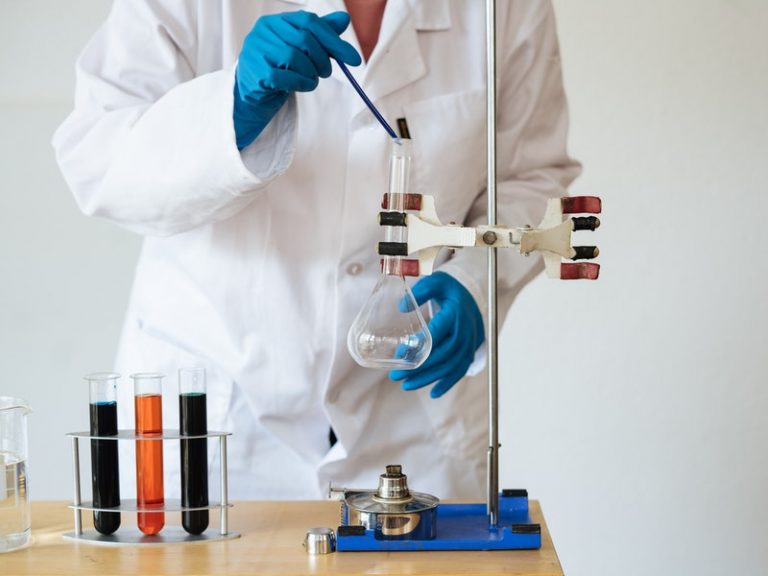
Chemistry is the study of matter and energy and the interactions between them. This is also the definition for physics, by the way. Chemistry and physics are specializations of physical science. Chemistry tends to focus on the properties of substances and the interactions between different types of matter, particularly reactions that involve electrons. Physics tends to focus more on the nuclear part of the atom, as well as the subatomic realm. Really, they are two sides of the same coin.
The formal definition of chemistry is probably what you want to use if you’re asked this question on a test.
Why Study Chemistry?
Because understanding chemistry helps you to understand the world around you. Cooking is chemistry. Everything you can touch or taste or smell is a chemical. When you study chemistry, you come to understand a bit about how things work. Chemistry isn’t secret knowledge, useless to anyone but a scientist. It’s the explanation for everyday things, like why laundry detergent works better in hot water or how baking soda works or why not all pain relievers work equally well on a headache. If you know some chemistry, you can make educated choices about everyday products that you use.
What Fields of Study Use Chemistry?
You could use chemistry in most fields, but it’s commonly seen in the sciences and in medicine. Chemists, physicists, biologists, and engineers study chemistry. Doctors, nurses, dentists, pharmacists, physical therapists, and veterinarians all take chemistry courses. Science teachers study chemistry. Firefighters and people who make fireworks learn about chemistry. So do truck drivers, plumbers, artists, hairdressers, chefs… the list is extensive.

Organic chemistry is the study of “living” things—not in the same way that biology is the study of life. Rather, organic chemistry takes a look at what composes the living things, and how they’re structured. Organic chemistry breaks down living things not only into organs seen in organisms, but goes a step further to break down those organs into atoms and molecules. It focuses mainly on carbon, which is highly essential to maintaining life, and particularly zeroes in on the hydrocarbon, which is a molecule composed of hydrogen and carbon. Hydrocarbons not only compose what we’re made of, but also what we consume, including carbohydrates, proteins, steroids, fats, and more! As a matter of fact, you may be surprised to know that everyday things, such as caffeine, plastic, and paint are all composed of hydrocarbons!
